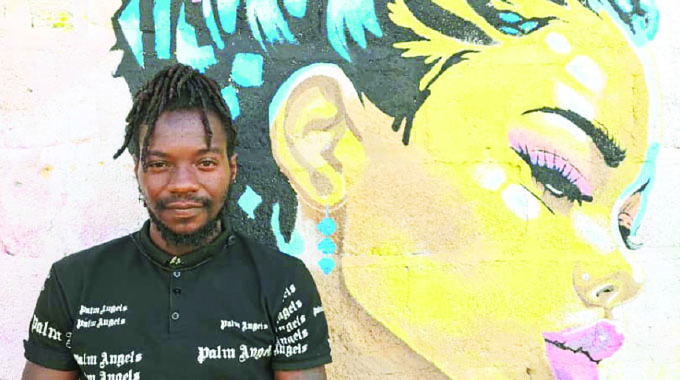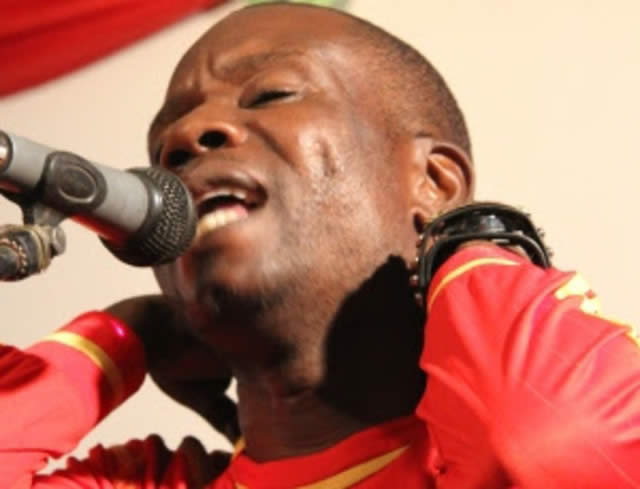How music influences language
Fred Zindi Music
Over the years there has been a significant change in the way we speak compared to how our ancestors spoke. It does not matter in what language one is speaking, language changes over time.
To give an example, during the last three centuries, the vocabulary of English has displayed the characteristic marks of a living tongue — words have become obsolete, words have altered in meaning, words have been created. In addition, many words have been borrowed, and the borrowing has been worldwide.
It is sometimes hard to determine if a word is really obsolete, for it may linger in obscurity and then suddenly emerge.
If one was to borrow the language used in William Shakespeare’s plays of long ago and tried to use the same language today, very few people would understand what they are on about. There are plenty of examples. For instance “to thieve” ,which means “to steal” found in Old English, then for long unrecorded, reappears in the seventeenth century.
Language also changes very subtly whenever speakers come into contact with each other. No two individuals speak identically: people from different geographical places such as Masvingo, Manicaland or Matabeleland clearly speak differently, but even within the same small community there are variations according to a speaker’s age, gender, ethnicity and social and educational background.
Through our interactions with these different speakers, we encounter new words, expressions and pronunciations and integrate them into our own speech.
Even if your family has lived in the same area for generations, you can probably identify a number of differences between the language you use and the way your grandparents speak. Every successive generation makes its own small contribution to language change and when sufficient time has elapsed the impact of these changes becomes more obvious. All languages change over time, and vary from place to place.
They may change as a result of social or political pressures, such as invasion, colonisation and immigration. New vocabulary is required for the latest inventions, such as cellphones (nharembozha), domestic appliances and industrial equipment. But a language can also change by less obvious means.
For instance, a radio or TV presenter who is imitated by young listeners could have a big influence on how these listeners end up speaking.
I was listening to the Zim dancehall Overdrive session on Star FM radio station last Saturday night. The presenter was Simbarashe Maphosa aka DJ Templeman, “The Godfather”. I could not follow every word he said because he was trying to sound like a Jamaican and was imitating patois but not every word came out right.
The Jamaican language is entertaining. However, it is actually quite difficult to acquire the accent of a Jamaican. Unless you have lived in Jamaica for many years, and even then, speaking patois fluently is not guaranteed. But with a little practice, you will be able to have at least a basic understanding of Jamaican patois.
Although the official language of Jamaica is standard English, many Jamaicans also speak patois which is a separate dialect/language. Jamaican patois (also known as “patwa”, “patwah” or “Jamaican Creole”) is the language that is used by most Jamaicans in casual everyday conversations while standard English is normally reserved for professional environments. In patwa, words like “I run” become “mi run”, “they run” becomes “dem run”, and “many bananas” becomes “nuff bananas”.
On one of my trips to Jamaica in the early 1990s, I bumped into Neville Garrick who was once Bob Marley’s graphic artiste.
I tried to speak to him in my own version of patwa. He suddenly burst out laughing, “Fred, is why you speaking like dat man? You cyann’t speak our raatid language even if you try. You haffe born with it. I know you can speak good English. So is why you insulting us by mimicking a language unna understand?”
I was embarrassed and vowed never to try that again.
A special group of Jamaicans calling themselves the Rastafarians have gone a step further by developing a form of slang within patois.
Words such as Jah for God, “feeling irie” for “feeling good”, “overstand” for “understand”, “wattagwaan?” meaning “what is going on or what’s up?”, “you is too tief man” meaning “you are a big thief” and “downpressor man” for “oppressor” come into play.
Jamaican patois has many borrowed words from many different languages, for example, English, Spanish and some West African languages. However, the pronunciations of these words are very similar to Jamaican English. One thing to keep in mind as you learn Jamaican patois is that it is not a strict, rule-oriented language.
Some words can be pronounced and spelled differently but still mean the same thing (e.g. both “pickney” and “pickeney” translates to “child”). The important thing is whether or not what you are saying can be understood. My advice to DJ Templeman is to ask him to conduct a study which will determine whether listeners to his show do “overstand” what he is saying. After the results, he can decide whether to continue broadcasting in that accent or not.
Well, the Jamaicans are not the only ones when it comes to language innovation.
The musicians in Zimbabwe have also come up with extensive Shona vocabulary.
Going back in time I first heard the word “jambanja” from Marko Sibanda when he sang “Jambanja Pahotera”. This word has now been included in the Shona dictionary, “Dura Manzwi Guru ReChiShona”.
I also came across “Gundamusaira” for the first time when Newman Chipeni sang that tune.
A few years later the urban groovers came up with “Chimoko Chidanger”, meaning “a beautiful woman”.
Over the years other words have come up.
Recently I was listening to Winky D’s collaboration song with Soul Jah Love called “Magafa”.
I phoned up Jonathan Banda, Winky D’s manager, to explain to me what that meant. He said it was something to do with legendary stories.
He went on to describe how music had “disinvented” the Shona language.
Up to now I am not sure I understand what Winky D means when he calls us “MaNinja”.
In the excitement brought to us by his music, we all accept without giving it much thought that we are “MaNinja”.
If you thought you had heard enough of the language used by “mahwindi” on urban transport kombis such as “simbi yamudhara” (meaning “beautiful woman’), then wait until you hear what Zim dancehall has come up with.
I looked at some of the Shona words that have been brought to life by Zim dancehall artistes.
When I first met Soul Jah Love, he called me “Chibaba” and I did not immediately embrace that kind of gesture because in my understanding of Shona, anything that began with the pre-fix “chi” was not in good taste. A few weeks later, as Soul Jah Love became increasingly popular, the word “chibaba-baba” became a popular ditty in Zim dancehall circles.
Other words which have been popularised by Zim dancehall artistes include “mumero” meaning “sell-out”. This one is found in Killer T’s and Kinnah’s songs. “Mbokoimboko” and “matsaga” (useless people) are words found in the likes of Seh Calaz’s songs.
When Zim dancehall artistes refer to “mangoma”, they are talking about music in general. When they say “ndakamuwachisa” they mean “I showed him up”. “Mabhanditi” are the equivalent of the Jamaican “rude boys” also known as bandits in Jamaican dancehall.
“Aka-sticker” is a word used by Zim dancehall artistes and fans when they refer to someone who is drunk usually after taking “bronco” or other drugs.
Some meaningless slogans such as “Ah Ah hi hi” by Tocky Vibes,”Popopo” from Killer T, “Hauite Hauite” from the likes of Ricky Fire and Legend Elly and “Mawayawaya” from Shinsoman have also come up from Zim dancehall artistes.
These words have been adapted wholesale by Zim dancehall fans. Sooner or later they are going to become part of our everyday language.
Already we have started calling ourselves “chibaba” and “chimama” without feeling offended. The role of music in shaping our language cannot be ignored. Time will tell!
Feedback: [email protected]





Comments